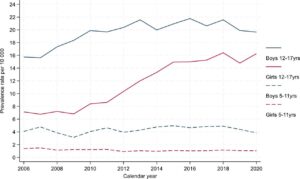
In a pivotal gathering, the Global Climate Summit 2023 commenced on Monday in Geneva, Switzerland, drawing leaders from over 100 countries to address the escalating climate crisis. The summit, which runs through the week, aims to forge new international agreements on carbon emissions and sustainable practices.
With climate change impacts becoming increasingly severe, world leaders are under pressure to deliver actionable solutions. The event’s opening remarks highlighted the urgency of the situation, emphasizing the need for immediate and collaborative action.
Key Goals and Agenda
The summit’s agenda is ambitious, focusing on several critical areas: reducing greenhouse gas emissions, transitioning to renewable energy sources, and enhancing global cooperation on climate adaptation strategies. A major goal is to update and strengthen commitments made under the Paris Agreement.
According to the United Nations, current national commitments are insufficient to limit global warming to 1.5 degrees Celsius above pre-industrial levels. The summit seeks to bridge this gap with more robust pledges and innovative solutions.
Expert Opinions and Perspectives
Experts agree that the stakes have never been higher. Dr. Maria Lopez, a renowned climate scientist, stated,
“We are at a critical juncture. The decisions made this week will shape the planet’s future for generations.”
Her sentiments were echoed by other experts who stressed the importance of immediate action to mitigate climate impacts.
Meanwhile, environmental activists have been vocal about their expectations for the summit. Greta Thunberg, a prominent climate activist, emphasized the need for transparency and accountability, urging leaders to move beyond rhetoric to tangible actions.
Historical Context and Challenges
The Global Climate Summit builds on decades of international climate negotiations. The first major climate conference, the Earth Summit in 1992, laid the groundwork for subsequent agreements. However, progress has been slow, with many countries struggling to meet their targets due to economic and political challenges.
One of the significant hurdles is balancing economic growth with environmental sustainability. Developing nations, in particular, face challenges in transitioning to green technologies without hindering their economic development.
By the Numbers
Recent data underscores the urgency of the climate crisis:
- 1.2°C: The current average global temperature increase since pre-industrial times.
- 50%: The reduction in global emissions needed by 2030 to meet the 1.5°C target.
- 200 million: The estimated number of climate refugees by 2050 if current trends continue.
Implications and Future Outlook
The outcomes of the Global Climate Summit 2023 will have far-reaching implications. Successful negotiations could lead to a significant reduction in global emissions and a more sustainable future. However, failure to reach consensus could exacerbate climate impacts, leading to more frequent and severe natural disasters.
Looking ahead, the summit’s results will likely influence future international policies and shape the global approach to climate change. As nations grapple with the dual challenges of development and sustainability, the need for innovative solutions and international cooperation has never been more critical.
The world watches as leaders deliberate, hoping for a breakthrough that could secure a healthier planet for future generations. The summit’s conclusion will be closely monitored, with expectations high for a definitive path forward in the fight against climate change.






